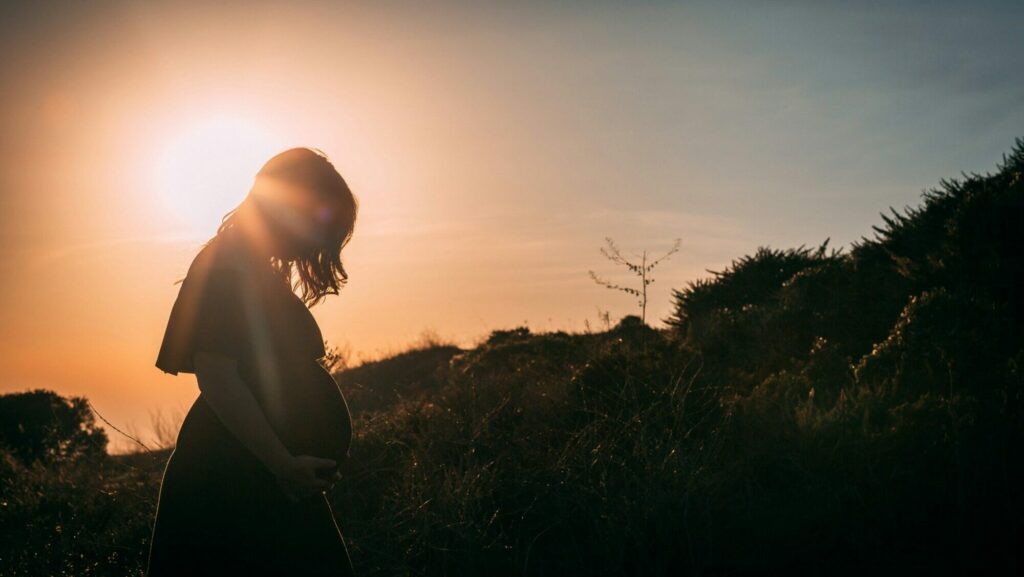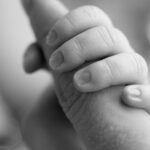Culture
The Women Defying America’s Birth Dearth: Why Have A Big Family?
Until I read Catherine Pakaluk’s fascinating new book, Hannah’s Children: The Women Quietly Defying the Birth Dearth, I was unaware that I had grown up in what is now considered to be a “large family.” I am the oldest of five children, but my father came from a family of 11 and my mother was one of 7. In the rural Reformed church communities where I live, a family of five children is considered “average” rather than “large.” But communities with large families are now a social aberration. With the exception of a few religious pockets, the birth rate is cratering in every single Western country.
Pakaluk, a social scientist and mother of eight, decided to investigate why, as small families, “DINKs” (dual income, no kids), and overt anti-natalism become the norm, some 5% of American women choose to have five or more children. She traveled across the country and interviewed 55 college-educated mothers with large families to ask them why they chose to have children and why they chose to have more. Pakaluk also explains why, despite concerted efforts at pro-natalist policies by governments, none have successfully boosted the birth rate to replacement level.
Catherine Pakaluk kindly agreed to an interview about who these mothers are, what motivates them, and what that means for the future of America and the West.
What made you embark on this project?
Global convergence to low lifetime births—under 2.1 per woman—is an iron fact of modern demography. It occurs in countries with generous government support for families and in countries without, in richer countries and in poorer ones. Fiscal crises loom for nations paying out promised benefits to older populations, while drawing on ever smaller numbers of younger workers. Nations will have to welcome (and manage) growing immigrant flows as they seek to forestall economic stagnation. Solving the ‘problem’ of low birth rates is the most pressing issue for the modern state.
I became interested in economics in college; I had worked in AIDS research at the National Institutes of Health. There I met brilliant researchers who cheered the expected depopulation effect of AIDS in Africa. This radicalized me, in a way. It left me clear-sighted about the failure of ‘experts’ to form good judgements. It also left me asking big questions about population, disease burden, and the causes of prosperity. So I left research in medicine and public health for doctoral studies in economics at Harvard University. I soon learned that the dogma of overpopulation was utterly unfounded. The truth was that birth rates were already perilously low in the 1990s and had been for years.
During my graduate school years I met and married my husband, Michael. We were blessed with several children who were a great joy to us. And we came to know many other people like us, since larger families tend to find each other. My professional and personal experiences could not have contrasted more sharply. I knew elite economists, demographers, and policymakers who were puzzled by a world of collapsing birth rates. But I knew many families who were welcoming children against the norm. A natural question presented itself to me: could the study of higher birth-rate families illuminate the study of lower ones? I became convinced the idea had merit.
Here’s why. If you ask an alcoholic what they need to stop drinking, some will say they need more money, and when conditions are better they will stop drinking; others will say they need more approval from family, and so on. In contrast, if you ask recovered alcoholics, you will get a totally different set of responses that bear no resemblance to what alcoholics say. Recovered people will say they had to decide, take it one day at a time, trust a higher power, and find people to hold them accountable. To beat alcoholism, you need principles derived from the healthy, not from the sick. The same goes for obesity—imagine trying to help overweight people without a clear vision of the diet and exercise habits of the healthy.
Our aversion to making normative judgements makes it hard to say the truth: collapsing birth rates are a dysfunction, a state of disease; we should be consulting urgently with people who escape this outcome, and we should be bringing their stories into the conversation about falling birthrates.
Do you find that there is a consistent correlation between religious belief and having large families?
Yes, but also no. Let me explain. Obviously, most people—even in a rapidly secularizing world—still profess some religious belief. But not all people with belief in God have large families. So we have dig into the nature of religious belief. What kind of religion correlates with having children?
In my interview work, I learned that large families arise when people place a very high value on childbearing compared to other things. They tend to be motivated by the conviction that having a child is worth more than anything else they might do with their time, talents, or money. For most people I talked to—98%—that conviction came from a deeply biblical faith: they believed that God’s first command “be fruitful and multiply” was inseparable from God’s Providence. —Not just in the sense that God would provide for more children, but more fundamentally that children are an expression of God’s goodness and his plan to prosper us. Children are blessings. This conviction had diverse manifestations: some had as many children as they could have; others took a more wait-and-see approach, as in to wait and see when they felt ready. But overall, they saw their fertility as a gift, and “you don’t put the gift on a shelf,” as one woman told me.
The kind of religion which correlates with having large families is the kind of religion with a very specific content in relation to children—a content that prizes sanctity of life over quality of life. Welcoming a child is always good. Children are the purpose of a marriage. Our marriages and our adult lives ought to be arranged for the sake of having and raising children well. If you find a religious community that is vague or silent about the value of children, a community which puts conditions on the right time for a child, a community that is silent about the meaning of marriage and procreation in God’s plan, then that is not a religion where large families are likely to abound.
In your research, did you find that there was a typical lifestyle for large families?
Actually, no! Of course, the women in my study were similar to each other in that they prioritized children above other things—important and good things often took second place to having another child. So in this sense you could say motherhood, or childbearing, became a ‘way of life’ for them, and not just a short ‘season of life’ as it is for most women today.
But as regards the external things, the women and families I encountered displayed an incredible diversity: moms worked full time, part-time, and not at all; kids were homeschooled and in traditional public or private schools; moms and dads were highly paid professionals (engineers, lawyers, accountants), middle-income workers (plumbers, oil rig workers, musicians), and in some cases even students; some lived in isolated areas, others in major metropolitan suburbs. Some families lived in the most expensive places in the United States and owned homes worth several million; others resided in low-income areas making it paycheck to paycheck.
Two things did stand out for me in relation to lifestyle. First, a certain attitude toward thrift. The wealthier moms and the less-well-to-do spoke about the joys of childhood not costing money—about the goodness of reusing, thrifting, and sharing things. And they concurred that having siblings meant that their kids didn’t need as much stuff. “They have each other,” one mom said, “and that overfills the cup.”
A second lifestyle commonality was the apparent absence of what we now call ‘hellicopter’ parenting. The moms very naturally (and deliberately) delegated responsibilities and provided independence for older children who took part in tending younger children. They also traced out a connection between responsibilities and happiness, pointing out that when children—even relatively young children—take on caretaking tasks for younger children, then they know they have a purpose and make a difference. I heard stories to this effect in almost every interview.
I come from a large family, and large families are common in the church I attend. Frequently in discussion with secular people, I’ll hear them say something like “I could never have more than one or two kids” or “I couldn’t imagine having that many children.” Increasingly, I find that they mean that literally—that they came from small families (often one child), and that they simply do not think it is possible to raise a large family. In Primal Screams: How the Sexual Revolution Created Identity Politics, Mary Eberstadt describes how shrinking/broken families have caused the breakdown of family learning. Do you find that many people today simply do not think raising more than one or two kids is actually possible because they haven’t seen it done?
Yes! I think there is a lot of wisdom in this notion. One mom told a story about being at the playground with her (many) kids. Another mom with one child approached her, shyly, and said, “Can I ask, how many children do you have?” The mom in my study replied about her large family—if I recall, she had nine or ten. The woman looked at her and said blankly, “You can do that?”
I think the lack of exposure to family life is self-perpetuating in deep ways. First, as you say, people don’t know it’s possible, because they haven’t seen it done. But second, and more importantly, they don’t even know children are something to want. And how are they supposed to know? In a family with two kids spaced a couple of years apart, neither one of those kids is going to remember having an infant or a young kid in the house. As teenagers, when they begin to form their view of things, they will not hold or rock a baby, change a diaper, throw a ball in the yard, or receive the astonishing love and affection that a younger sibling can give. They will not learn that babies and young kids “provide their own therapy.” They will not know that you can bear the hardship of raising kids with great enthusiasm when a little one has become your most treasured ‘possession’.
The good news is—plenty of moms in my study had not been exposed to the merits and goodness of a large family. But thanks to some kind of life event, a religious conversion, a marriage story, or just the yearning from a lonely childhood, they decided to have several children. Those moms reported a lot of learning by doing, and many told us of treasured mentors and friends who helped them discover their inner potential to be moms of many. To my mind, this is worth stressing: if we’re made to have children, the partnership and skill of parenting is recoverable in the human heart.
READ THE REST OF THIS INTERVIEW HERE








